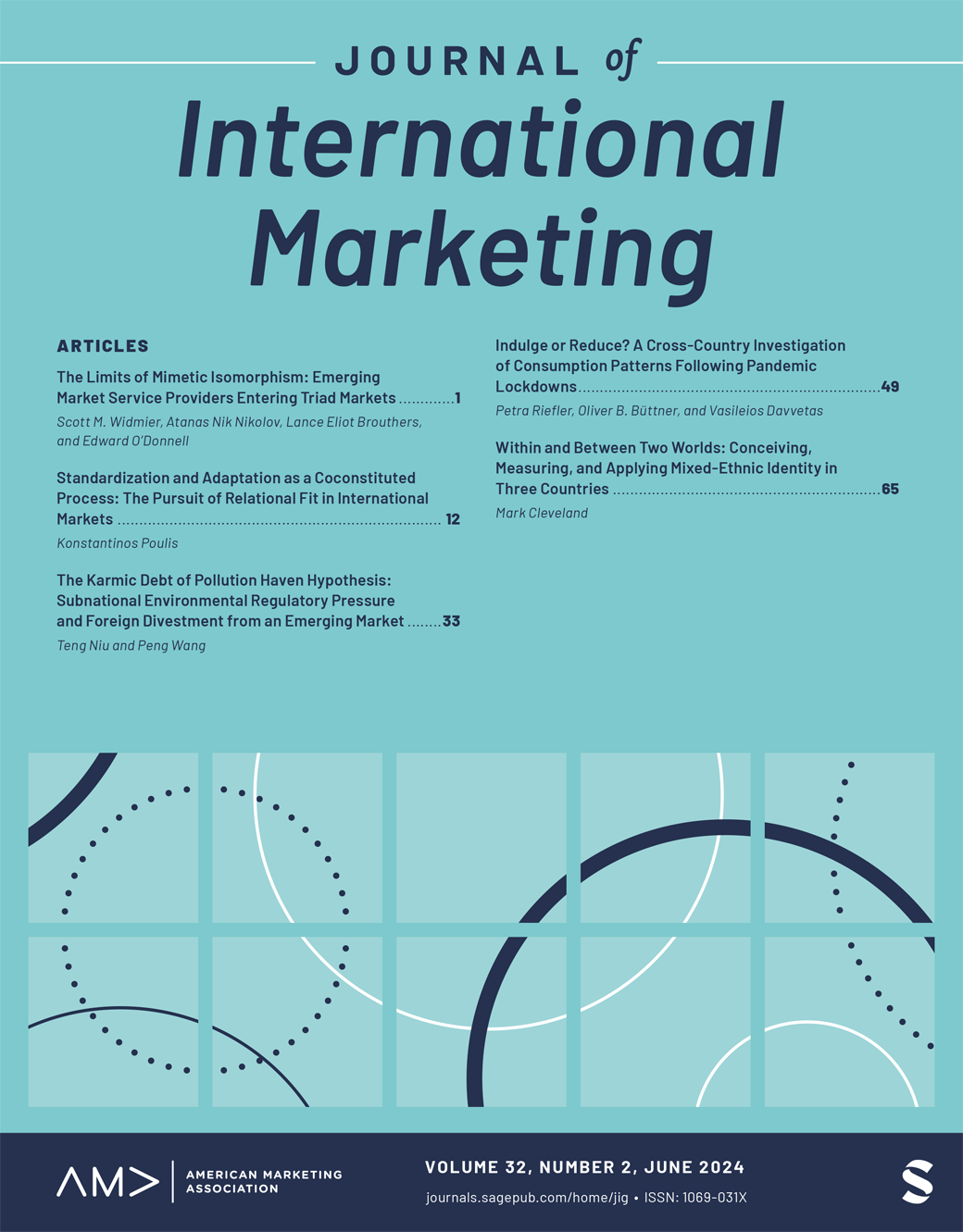遗产与社交媒体信息寻求在COVID-19期间美国和中国消费者囤积中的作用
IF 4.9
2区 管理学
Q1 BUSINESS
引用次数: 5
摘要
通过两项跨文化样本(美国和中国)的研究,本研究探讨了COVID-19期间消费者囤积的心理机制。研究1的发现表明,在美国和中国,消费者囤积受到遗产和社交媒体信息寻求、感知稀缺性和稀缺性归因的不同影响。在中国,社交媒体信息寻求与囤积行为呈负向下游关系,而传统媒体信息寻求与囤积行为呈正向关系。在美国,只有社交媒体信息寻求与囤积症呈正相关。此外,当消费者将稀缺责任归因于供应不足而不是需求过高时,这些影响是显著的。研究2表明,当直接陈述稀缺原因时,当稀缺原因是供给而不是需求时,感知稀缺会增加中国消费者的囤积意愿,而美国消费者的囤积意愿不随稀缺原因而变化。研究结果强调了遗产和社交媒体信息寻求如何影响消费者囤积的跨文化差异,并强调了可能囤积的情况的含义。本文章由计算机程序翻译,如有差异,请以英文原文为准。
The Roles of Legacy Versus Social Media Information Seeking in American and Chinese Consumers’ Hoarding During COVID-19
Through two studies conducted with cross-cultural samples (the United States and China), this research examines the psychological mechanism of consumer hoarding during COVID-19. Findings from Study 1 suggest that consumer hoarding is differently affected by legacy and social media information seeking, perceived scarcity, and scarcity attributions in the United States versus China. For China, while social media information seeking has a negative downstream relationship to hoarding, legacy media information seeking has a positive relationship with hoarding. In the United States, only social media information seeking has a positive relationship with hoarding. Further, these effects are significant when consumers attribute the scarcity responsibility to insufficient supply but not high demand. Study 2 shows that when the cause of scarcity is stated directly, perceived scarcity increases hoarding intention for Chinese consumers when the scarcity cause is due to supply but not demand, whereas U.S. consumers’ hoarding intention does not vary with the scarcity cause. The findings underscore cross-cultural differences in how legacy and social media information seeking influence consumer hoarding and highlight implications for situations in which hoarding is likely.
求助全文
通过发布文献求助,成功后即可免费获取论文全文。
去求助
来源期刊

Journal of International Marketing
BUSINESS-
CiteScore
8.70
自引率
17.20%
发文量
28
期刊介绍:
As the globalization of markets continues at a rapid pace, business practitioners and educators alike face the challenge of staying current with the developments. Marketing managers require a source of new information and insights on international business events. International marketing educators require a forum for disseminating their thoughts and research findings. Journal of International Marketing(JIM) is an international, peer-reviewed journal dedicated to advancing international marketing practice, research, and theory. Contributions addressing any aspect of international marketing management are published each quarter.
 求助内容:
求助内容: 应助结果提醒方式:
应助结果提醒方式:


